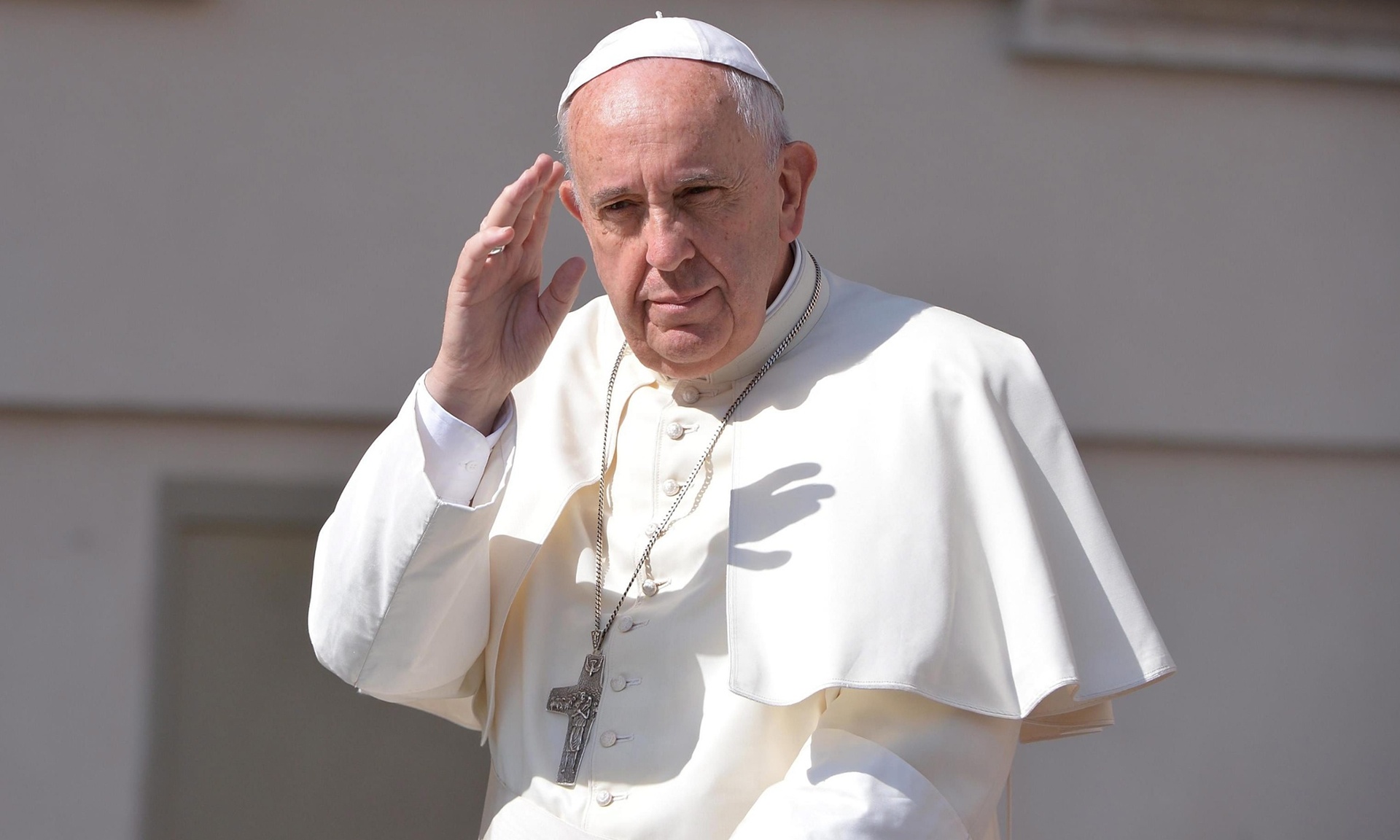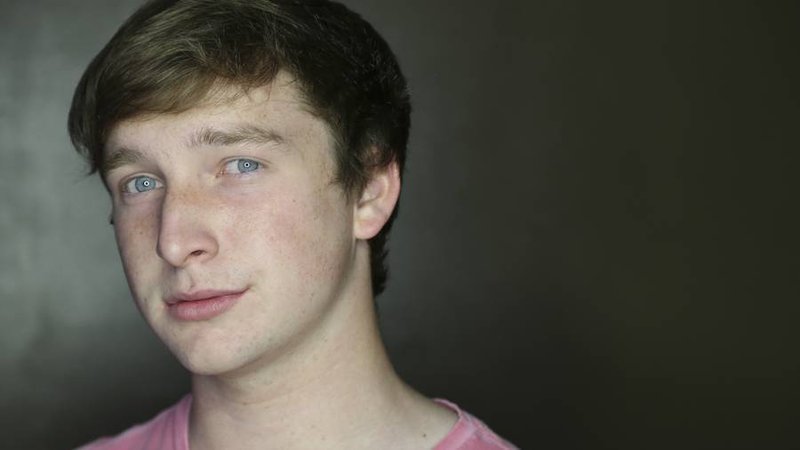Ever since it became public that Pope Francis met in Washington with Kim Davis, the Kentucky county clerk who refused to issue marriage licenses for same-sex couples, the questions have been swirling: Why did he meet with her, and was it meant as a political statement?
As it turns out, the Vatican said on Friday, the pope did not mean to endorse Ms. Davis’s views. It also said he gave her no more than a typical brief greeting, despite what her lawyer described.
Instead, the Vatican said that Francis gave only one “real audience”: to someone later identified as one of his former students, Yayo Grassi, a gay man in Washington who says he brought his partner of 19 years to the Vatican’s embassy in Washington for a reunion. They even shot video.
The disclosure, after the Vatican’s unusual attempt to correct the impressions left by Francis’ meeting with Ms. Davis, added to days of speculation about whether Francis intended to send a message on the place of gays in the church, or conscientious objection, and whether his advisers had fully briefed him on Ms. Davis, or had their own agenda.
The Vatican spokesman emphasized that the meeting with Ms. Davis was arranged by the office of the Vatican’s ambassador in Washington, not by anyone in Rome — including the pope.
“The pope did not enter into the details of the situation of Mrs. Davis, and his meeting with her should not be considered a form of support of her position in all of its particular and complex aspects,” the Rev. Federico Lombardi, the Vatican spokesman, said in a statement released Friday morning.
On the other hand, Mr. Grassi, a 67-year-old caterer, told The New York Times that he and the pontiff have known each other since the 1960s, when Jorge Mario Bergoglio, as the future pope was then called, taught him literature and psychology at the Colegio de la Inmaculada Concepción, a Jesuit high school in Santa Fe, Argentina.
Mr. Grassi said that he had resumed contact with the future pope years later, when he was the archbishop of Buenos Aires. He also visited the pope at the Vatican in September 2013, and later contacted his office to ask for an audience in Washington.
“Once I saw how busy and exhausting his schedule was in D.C., I wrote back to him saying perhaps it would be better to meet some other time,” Mr. Grassi said. “Then he called me on the phone and he told me that he would love to give me a hug in Washington.”
Mr. Grassi said that he had been accompanied by his partner of 19 years, Iwan Bagus, as well as four friends, and that the meeting took place at the Vatican Embassy on Sept. 23 — a day before Ms. Davis met the pope.
Mr. Grassi said that Francis had told him to arrange the visit through the office of Archbishop Carlo Maria Viganò, the papal nuncio, or envoy, in Washington.
“It was a private meeting, for about 15 to 20 minutes, in which I brought my boyfriend of 19 years,” Mr. Grassi said. His boyfriend, Mr. Bagus, worked on a video that was posted online that showed Francis hugging Mr. Grassi and the others.
Mr. Grassi said the meeting was purely personal. “I don’t think he was trying to say anything in particular,” Mr. Grassi said. “He was just meeting with his ex-student and a very close friend of his.”
Late on Friday, the Vatican confirmed the meeting. “Mr. Yayo Grassi, a former Argentine student of Pope Francis, who had already met other times in the past with the pope, asked to present his mother and several friends to the Pope during the Pope’s stay in Washington, D.C.,” Father Lombardi, the Vatican spokesman, said in a statement.
“As noted in the past, the pope, as pastor, has maintained many personal relationships with people in a spirit of kindness, welcome and dialogue,” the statement added.
Earlier on Friday, the Vatican said that Archbishop Viganò had arranged the pope’s meetings in Washington, including the one with Ms. Davis.
The news of the meeting with Ms. Davis was disclosed late Tuesday night by Ms. Davis’s lawyer, Mathew D. Staver, at the same time it was reported on the website of Inside the Vatican, a conservative publication edited by an American who has covered the Vatican for years.
For nearly eight hours, Vatican officials refused to confirm or deny that the meeting had occurred, before finally confirming it on Wednesday afternoon.
For Francis, the timing of the Davis controversy is not ideal. Beginning Sunday the Vatican is staging a critical three-week meeting of bishops and laypeople to discuss whether to recommend changing their approach to contemporary issues related to the family, like gay couples, single parents or whether divorced and remarried Catholics who have not obtained annulments should be allowed to receive communion.
That meeting, known as a synod, could become a showdown between liberals and conservatives. Francis has spent nearly two years trying to gradually build consensus and has repeatedly stated his desire for a more welcoming, merciful outreach — even as he has not signaled any willingness to change church doctrine.
News of his meeting with Ms. Davis buoyed Christian conservatives, who had been dismayed that the pope, in his emphasis on the poor, barely mentioned issues like abortion and homosexuality during his visit to Washington, New York and Philadelphia. It also puzzled and angered more liberal observers.
It also led observers of the Vatican to speculate about whether the encounter with Ms. Davis was a signal of support for her cause. Francis has emphasized that he strongly believes in conscientious objection as a human right, a position he reaffirmed on his plane ride home.
On Friday, the Vatican appeared to be distancing itself from Ms. Davis’s camp. Father Lombardi’s statement said that the brief meeting “has continued to provoke comments and discussion,” and that he was providing clarification “in order to contribute to an objective understanding of what transpired.”
The Vatican’s statement prompted reactions on both sides of the Atlantic.
In a phone interview on Friday, Mr. Staver said the meeting had been called by the Vatican.
“This was a private meeting initiated by the Vatican,” Mr. Staver said. “My contacts were Vatican officials in the United States. And I was informed the request came directly from the pontiff.”
Mr. Staver said the request had come on Sept. 14, the day Ms. Davis returned to work after her release from jail. Ms. Davis and her husband were picked up at the Omni Shoreham Hotel in a tan van by private security guards who spoke Italian, he said. She had been instructed to change her hairstyle so she would not be identified.
Mr. Staver said Ms. Davis was not among a large group of people meeting the pope. She saw no one else waiting to see the pope and no one else saw her. “Just think about it. If she was in a line, there is no way this could have been kept secret for five days,” he said.
But at the Vatican on Friday, a spokesman, the Rev. Thomas Rosica, said the invitation had been extended by the nuncio’s office — not from Rome.
“Who brought her in? The nuncio,” said Father Rosica, who is working with the Vatican’s media office in advance of a major meeting of bishops that begins this weekend. “The Nunciature was able to bring in donors, benefactors.”
Father Rosica said of the controversy: “I would simply say: Her case is a very complex case. It’s got all kinds of intricacies. Was there an opportunity to brief the pope on this beforehand? I don’t think so. A list is given — these are the people you are going to meet.”
Mr. Staver, for his part, said he had been briefly introduced to Archbishop Viganò in April, when he spoke at a large rally in Washington against same-sex marriage, before the Supreme Court ruled on the issue.
The Rev. James Martin, editor at large of the Jesuit magazine America, had cautioned in an article this week that the pope meets many well-wishers on his trips, and that news of the meeting with Ms. Davis had been manipulated.
“I was very disappointed to see the pope having been used that way, and that his willingness to be friendly to someone was turned against him,” Father Martin said in an interview on Friday. “What may originally have prevented them from issuing a statement was the desire not to give this story too much air. But what they eventually came to realize was that they needed to correct some gross misrepresentations of what had happened. It shows that Pope Francis met with many people on the trip, and that she was simply another person who he tried to be kind to.”
Father Rosica’s statement seemed to square with that account.
Asked on Friday if the Vatican press office had been unaware that Ms. Davis had met the pope, Father Rosica said: “No, but I think we may not have been aware of the full impact of the meeting. It is very difficult sometimes when you are looking at things in America from here.”
A receptionist who answered the phone at the Vatican Embassy in Washington on Friday said, “The nuncio does not deny that the meeting took place, but would not make any further comment.”
She said the embassy did not have its own spokesman, and that no other officials there would comment.
Archbishop Viganò is turning 75 in January, the age at which bishops must submit a formal request to the Vatican asking for permission to resign. These requests are not automatically accepted, and bishops often stay in their appointments well past age 75. But if Archbishop Viganò is held responsible for what is seen as a grave misstep on an important papal trip, he is likely to be removed at the first respectable opportunity, according to several church analysts.
“Nobody in the Catholic Church wants another Regensburg,” said Massimo Faggioli, an associate professor of theology and director of the Institute for Catholicism and Citizenship at the University of St. Thomas in St. Paul. He was referring to the backlash after Pope Benedict XVI, Francis’ predecessor, gave a speech in Regensburg, Germany, that appeared to denigrate Islam.
“This was not as serious as Regensburg, when Benedict read his own speech,” Dr. Faggioli said about the meeting attended by Ms. Davis. “But the pope has to be able to rely on his own system, and in this case the system failed him. The question is, was it a mistake, or was it done with full knowledge of how toxic she was?”
The meeting with Ms. Davis was clearly a misstep, Dr. Faggioli said, “because the whole trip to the United States he very carefully didn’t want to give the impression that he was being politicized by any side.”
He added, “And this thing is the most politicized thing that you can imagine.”
Complete Article HERE!





